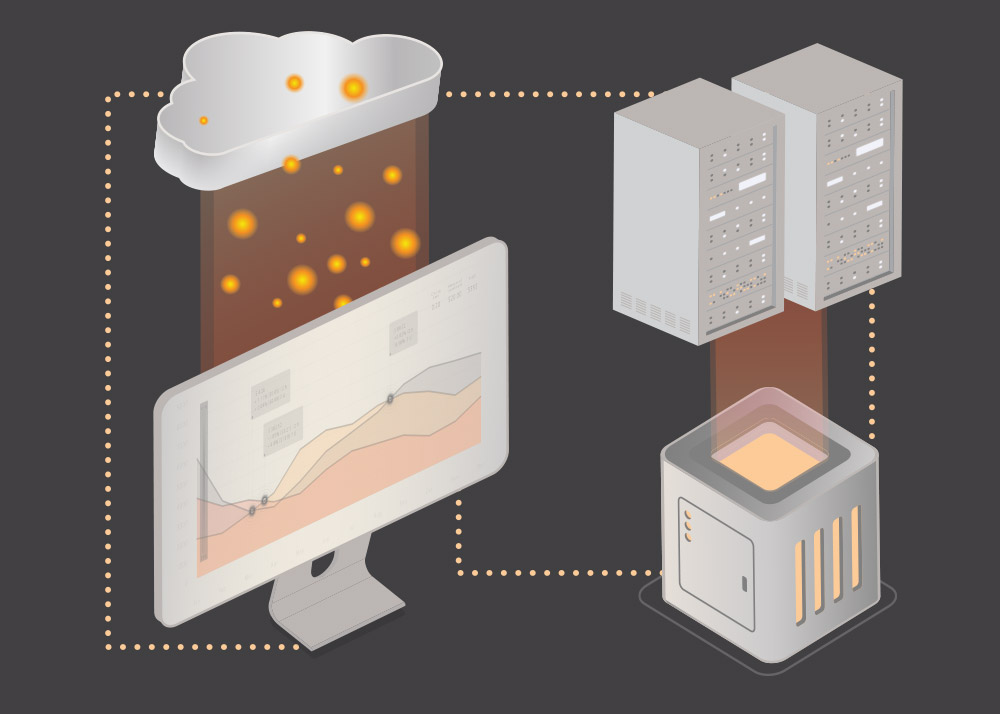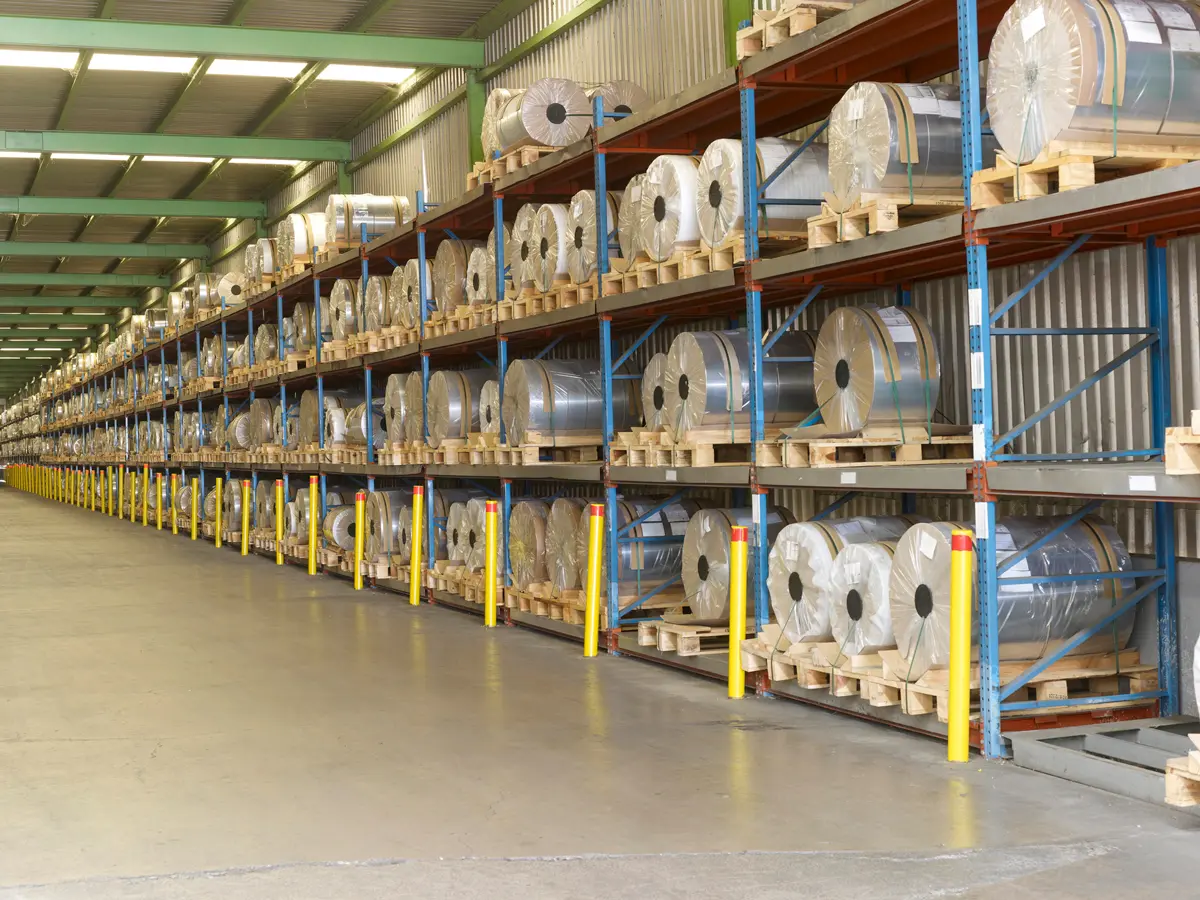Metallurgical Intelligence® on-premises versus Software-as-a-Service:
Which option is right for you?
Digital transformation is easier than ever with Metallurgical Intelligence® Software-as-a-Service
For more than a decade, Metallurgical Intelligence® has been the undisputed market leader when it comes to an enterprise-wide digital twin, and metallurgical accounting and process optimisation software for minerals processing plants. We’ve installed our software in eight countries, for some of the world’s largest mining organisations, and we’ve helped our clients collectively save millions of dollars – by detecting issues before they escalate, optimising processes, improving recovery rates, identifying under-reported product losses, and much more.
In recent years, however, we’ve found that a significant portion of our customers are starting to rethink the way in which they consume technology. Many are looking for new, cloud-first options due to several reasons – one of which is budget and cash flow.
For some organisations, the up-front cost of an on-premises delivery model can be a barrier. An on-premises solution may also require the organisation to invest in more servers, physical space, power, security and potentially, even more IT staff to support it.
In many jurisdictions, paying for a cloud-based solution on a month-to-month basis can also be classified as an operational expense, which can accelerate internal budget approval processes. By contrast, a non-premises implementation with a traditional one-off licensing fee may be considered to be capital expenditure, which typically requires a longer approval process and prolongs the adoption of new technologies.
The value of data and data-capture technologies has been widely recognised by many industries. However, for the mining sector, valuing data as an asset is a relatively new concept. While the sector remains in good economic health, mining organisations remain risk adverse. Mining organisations will only invest in solutions with a clear return on investment or investments that have a strong history of delivering a profitable return.
Historically, it is easier for mining executives to obtain budgetary approval for low-risk, physical assets. Without this transactional history for the industry, digital assets, and data capture technologies, can be seen as a higher risk – despite the proven financial benefits they have delivered. According to research by Boston Consulting Group (BCG), only around 10% of the industry views data as a corporate ‘asset’1, and it’s often seen simply as an additional cost – rather than something that can add enormous financial value.
Security is another major consideration. With technology changing so rapidly, many organisations are starting to appreciate the fact that cloud-based solutions can deliver continually upgraded security and governance. Trust is essential in cloud computing, and providers maintain leading-edge technology to protect their customers’ data. However, this isn’t always the case for on-site servers – the security of which needs to be managed and maintained by internal IT teams.
According to a recent survey, many mining companies remain very unprepared for a cyber-security attack, and don’t have necessary systems in place. Of those surveyed, seventy eight percent of those responsible for their organisations industrial control systems were concerned there would be a high-risk target of a cyber-attack. Of this number, forty five percent say they are ‘extremely concerned’ about the security of companies in mining, energy and utilities2.
The growing sophistication of cloud offerings, as well as satellite and network infrastructure, and the ready availability of both public and private cloud options, is another underlying reason for the growth in cloud-based platforms.
It’s for these reasons that we have recently launched Metallurgical Intelligence® Software-as-a-Service. This new option gives organisations all the benefits of our on-premises software, but with a new level of scalability, flexibility, security, and control over cash flow that only the cloud can deliver.
Unsure which option is best for your organisation? Here’s an overview:
Metallurgical Intelligence® Software-as-a-Service versus On-Premises
Before we drill down into some of the key differences, perhaps the most important thing to remember is, whichever option you choose, your Metallurgical Intelligence® solution and functionality remains exactly the same.
Both our on-premises and SaaS versions have identical features, tools, capabilities and the same level of customisation. With both options you receive:
- A digital twin solution, fully customised to the specifics of your operation
- Migration of any existing data
- Integration with existing solutions/applications
- Configuration and installation
- In-depth training, customised to your requirements
- Ongoing support from Metallurgical Systems
The differences simply come into play with regards to how your solution is deployed, managed and paid for. Here’s a quick overview.
Where does each solution live, and who is responsible?
When you choose the on-premises version of Metallurgical Intelligence®, it will be installed by our expert team, on your own internal servers. This means your solution can only be accessed remotely by someone with an authorised virtual private network (VPN). While our team is responsible for managing and maintaining the software (conducting upgrades, bug fixes and patch management), your internal IT team is responsible for ensuring the stability and maintenance of your server environment.
By contrast, Metallurgical Intelligence® SaaS lives in either a public or private cloud environment. This means the solution can be securely accessed by any authorised user, from anywhere without the need for a VPN. It also means the burden of server maintenance is taken away from your IT team – and frees them to focus on other initiatives.
What are the different pricing models?
With the on-premises version, you purchase your software up-front, and pay an annual maintenance fee. This includes all upgrades and required support. This version is typically budgeted for as a capital expense.
By contrast, with the SaaS version, there is no significant up-front investment for licensing, and you simply pay for your software month to month, as an operating expense. For many businesses, this can be considered to be an easier and less risky approach to digital transformation. It also gives you a clear line of sight regarding your ongoing expenses.
What about security?
Metallurgical Intelligence® is built with robust security protocols in mind, and our on-premises version is regularly updated with security patches where required.
However, one of the benefits of Metallurgical Intelligence® SaaS is that you can leverage robust and continually updated cloud security. You also benefit from intelligent, cloud-based tools that can improve your ability to detect and respond to cyber threats.
What happens if we grow?
While both versions of our software can be scaled to suit the size of your organisation, or deployed to new sites as your organisation grows, our SaaS version is inherently more scalable and flexible. It can be very easily deployed across multiple sites. Importantly, as all solutions are based in the cloud, multi-site insights can be collated and centralised for a group performance overview.
Can the Metallurgical Intelligence® extensions and other modules also be delivered via SaaS?
The full suite of Metallurgical Intelligence® is available via the SaaS model. This includes MI Core®, MI UP®, MI Scenario® and MI Process Optimiser®. As with the on-premises version of our software, all modules and components are fully customised to the specifics of your plant.
How does support work?
We have just launched a new tiered support model for the on-premises, hybrid and SaaS versions of our software.
|
|
|
What happens if we lack a robust internet connection?
If your mine site is remote and you lack a reliable and consistent internet connection, you may want to consider the on-premises version of Metallurgical Intelligence®. If you are deploying across multiple sites and some have robust connectivity and others don’t, it’s also possible to have different types of deployment that combines both options.
Find out more
If you want to find out more about our new SaaS offering, or about which option is right for your organisation, please don’t hesitate to get in touch.





